The usual way of making steel gives rise to a tremendous amount of green house gases that trap heat into the atmosphere and prevent it from escaping. However, a new method of steel production that MIT has invented could revolutionize steel-making ending up producing a cheaper and way stronger alternative.
The worldwide steel production stands at a total of about 1.5 billion tons annually. Every ton that is produced gives out an approximate of two tons of carbon dioxide, says industry related information. This aggregates to 5% of the earth’s greenhouse gas emissions.
Three people initiated the possibility of taking a small idea forward - materials chemistry professor Donald Sadoway, assistant professor of metallurgy Antoine Allanore and LanYin, PhD. The background – Dr Sadoway received a grant from NASA to look for ways in which oxygen could be produced on the moon so that in the future, the lunar space could be made a habitable base.
A process that he had invented, named the molten oxide electrolysis, could use iron oxide from the soil collected from the moon to produce an abundant supply of oxygen.
‘This method used an iridium anode, but since iridium is expensive and supplies are limited, that’s not a viable approach for bulk steel production on Earth. Finding an alternative wasn’t easy, because molten iron oxide, at about 1,600 °C, “is a really challenging environment,” Sadoway explains. “The melt is extremely aggressive. Oxygen is quick to attack the metal.”
The problem, however was solved by Allanore. The answer arrived at was an alloy that very naturally forms a thin film of metallic oxide on its surface that is thick enough to prevent further attack by oxygen but thin enough for electric current to flow freely through it. The alloy’s constituents, iron and chromium, are “abundant and cheap,” Sadoway says.’
This process not only limits the emissions to oxygen only, but also makes it a feasible option for small-scale factories that produce steel in medium quantities. “Conventional steel plants are profitable only if they can produce millions of tons of steel per year, but this new process could be viable for production of a few hundred thousand tons per year,” he says.
Sadoway says that this process yields an exceptionally pure quality of metal. It can also be adapted for a carbon-free production of several other metals and alloys which includes nickel, titanium and ferromanganese.
The technology is still at a nascent stage with testing being done at laboratory levels only. Meanwhile, Sadoway, Allanore and a former student have constituted a company to develop a plant prototype that can be best put to use in a commercial facility.The time estimated – 3 years to design build and test such a breakthrough technology.
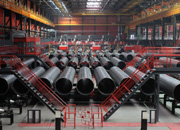 Threeway Steel is known as a professional supplier engaged in manufacturing and distributing a wide range of steel pipe, and our headquarter located the central part of China – Hunan and six associated factories throughout China.
Threeway Steel is known as a professional supplier engaged in manufacturing and distributing a wide range of steel pipe, and our headquarter located the central part of China – Hunan and six associated factories throughout China.
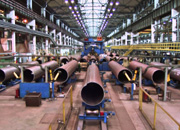 Threeway Steel is known as a professional supplier engaged in designing, manufacturing and distribution of a wide range of steel products with the headquarter located the central part of China – Hunan and six associated factories throughout China.
Threeway Steel is known as a professional supplier engaged in designing, manufacturing and distribution of a wide range of steel products with the headquarter located the central part of China – Hunan and six associated factories throughout China.
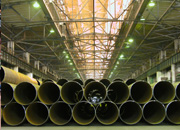 Threeway Steel is known as a professional supplier engaged in designing, manufacturing and distribution of a wide range of steel products with the headquarter located the central part of China – Hunan and six associated factories throughout China.
Threeway Steel is known as a professional supplier engaged in designing, manufacturing and distribution of a wide range of steel products with the headquarter located the central part of China – Hunan and six associated factories throughout China.
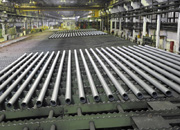 Threeway Steel is known as a professional supplier engaged in designing, manufacturing and distribution of a wide range of steel products with the headquarter located the central part of China – Hunan and six associated factories throughout China.
Threeway Steel is known as a professional supplier engaged in designing, manufacturing and distribution of a wide range of steel products with the headquarter located the central part of China – Hunan and six associated factories throughout China.
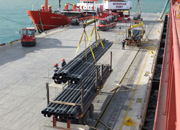 Threeway Steel is known as a professional supplier engaged in designing, manufacturing and distribution of a wide range of steel products with the headquarter located the central part of China – Hunan and six associated factories throughout China.
Threeway Steel is known as a professional supplier engaged in designing, manufacturing and distribution of a wide range of steel products with the headquarter located the central part of China – Hunan and six associated factories throughout China.

